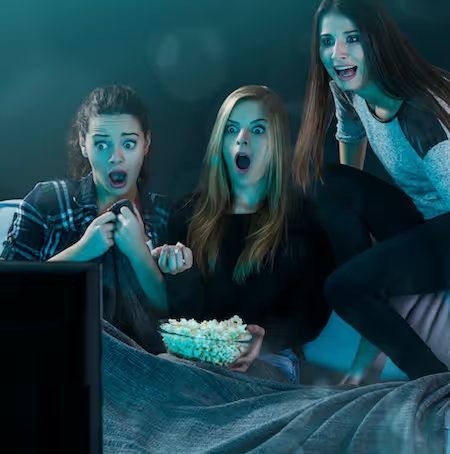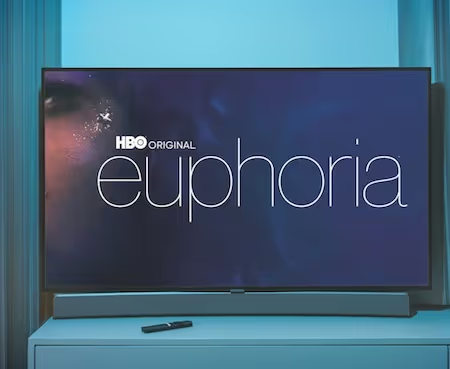


These days I’ve been talking with young people about the ways national headlines continuously seep into their lives from places like Instagram, TikTok, TV, newspapers, digital or print, and the list goes on.
In fact, recently, I spoke with someone who has decided to really cut down on their social media use and news feeds because they saw how it was impacting their mental state. As parents, if our kids are not taking more breaks on their own, how can we model a better way and do things like making a new family media agreement to help our kids have time away from the negative news?
I have written in the past and podcasted about how we help our kids recognize disinformation, but today I’m discussing managing the quantity of “bad news.”
I believe there is an unspoken social pressure that to be a “good adult,” one should consume at least some media news every day. I know that many youth I talk to agree with me.
In addition, given all the time youth are connected to media, many are also getting news a lot. And news, by design, is attention-grabbing and rarely pretty. It is often downright demoralizing: A new Covid variant, another economic scandal, another natural disaster, continued shortages of vaccines globally against Covid, and on and on.
We all know that news outlets report negative stories because our minds are evolutionarily designed to pay more attention to the negative than the positive. This negativity has an insidious impact on our kids.
Learn more about showing our movies in your school or community!
Join Screenagers filmmaker Delaney Ruston MD for our latest Podcast

Learn more about our Screen-Free Sleep campaign at the website!
Our movie made for parents and educators of younger kids
Learn more about showing our movies in your school or community!
Learn more about showing our movies in your school or community!
Join Screenagers filmmaker Delaney Ruston MD for our latest Podcast

Learn more about our Screen-Free Sleep campaign at the website!
Our movie made for parents and educators of younger kids
Join Screenagers filmmaker Delaney Ruston MD for our latest Podcast
Just yesterday, we were looking at old home movies, and my son asked to see footage of Leon and talked about how he still thinks about him at times. Leon was a man who was homeless who I got to know while jogging. He clearly had schizophrenia and was just a delight, always wanting to give me little toys. I brought my kids to meet him a few times, and he gave them little toys that they still have today.
All this said, I want to be clear that I have taught my kids a lot about safety. I grew up in a high-crime neighborhood which makes me very safety conscious. For example, I have made sure they know to always listen to their gut and if, for example, they see a person who gives them any strange feelings, cross the street — never worry that the person will think badly of them. Another example is never, when home alone, open the door to people they don’t know even if they look like an Amazon delivery person.
As we’re about to celebrate 10 years of Screenagers, we want to hear what’s been most helpful and what you’d like to see next.
Please click here to share your thoughts with us in our community survey. It only takes 5–10 minutes, and everyone who completes it will be entered to win one of five $50 Amazon vouchers.
These days I’ve been talking with young people about the ways national headlines continuously seep into their lives from places like Instagram, TikTok, TV, newspapers, digital or print, and the list goes on.
In fact, recently, I spoke with someone who has decided to really cut down on their social media use and news feeds because they saw how it was impacting their mental state. As parents, if our kids are not taking more breaks on their own, how can we model a better way and do things like making a new family media agreement to help our kids have time away from the negative news?
I have written in the past and podcasted about how we help our kids recognize disinformation, but today I’m discussing managing the quantity of “bad news.”
I believe there is an unspoken social pressure that to be a “good adult,” one should consume at least some media news every day. I know that many youth I talk to agree with me.
In addition, given all the time youth are connected to media, many are also getting news a lot. And news, by design, is attention-grabbing and rarely pretty. It is often downright demoralizing: A new Covid variant, another economic scandal, another natural disaster, continued shortages of vaccines globally against Covid, and on and on.
We all know that news outlets report negative stories because our minds are evolutionarily designed to pay more attention to the negative than the positive. This negativity has an insidious impact on our kids.
Just yesterday, we were looking at old home movies, and my son asked to see footage of Leon and talked about how he still thinks about him at times. Leon was a man who was homeless who I got to know while jogging. He clearly had schizophrenia and was just a delight, always wanting to give me little toys. I brought my kids to meet him a few times, and he gave them little toys that they still have today.
All this said, I want to be clear that I have taught my kids a lot about safety. I grew up in a high-crime neighborhood which makes me very safety conscious. For example, I have made sure they know to always listen to their gut and if, for example, they see a person who gives them any strange feelings, cross the street — never worry that the person will think badly of them. Another example is never, when home alone, open the door to people they don’t know even if they look like an Amazon delivery person.
Sign up here to receive the weekly Tech Talk Tuesdays newsletter from Screenagers filmmaker Delaney Ruston MD.
We respect your privacy.
These days I’ve been talking with young people about the ways national headlines continuously seep into their lives from places like Instagram, TikTok, TV, newspapers, digital or print, and the list goes on.
In fact, recently, I spoke with someone who has decided to really cut down on their social media use and news feeds because they saw how it was impacting their mental state. As parents, if our kids are not taking more breaks on their own, how can we model a better way and do things like making a new family media agreement to help our kids have time away from the negative news?
I have written in the past and podcasted about how we help our kids recognize disinformation, but today I’m discussing managing the quantity of “bad news.”
I believe there is an unspoken social pressure that to be a “good adult,” one should consume at least some media news every day. I know that many youth I talk to agree with me.
In addition, given all the time youth are connected to media, many are also getting news a lot. And news, by design, is attention-grabbing and rarely pretty. It is often downright demoralizing: A new Covid variant, another economic scandal, another natural disaster, continued shortages of vaccines globally against Covid, and on and on.
We all know that news outlets report negative stories because our minds are evolutionarily designed to pay more attention to the negative than the positive. This negativity has an insidious impact on our kids.

Many young people and adults love horror films and talk about how they love the feeling of being scared. This is so very different from me. I am not at all a fan. This week I have been thinking about ways to talk with kids about when horror in movies, TV shows, and online, in general, go too far.
READ MORE >
The Screenagers’ Tech Talk Tuesday blog from two weeks ago provided four questions for teens to answer regarding the HBO show Euphoria. As intended, the questions sparked conversations among adults and teens, and we got many thoughtful answers from teens in the questionnaire.
READ MORE >
I find HBO’s Euphoria incredibly disturbing and know that although so many of our kids have watched it, many parents never have. Today, I offer a way into a conversation with youth about the show’s topics and popularity.
READ MORE >for more like this, DR. DELANEY RUSTON'S NEW BOOK, PARENTING IN THE SCREEN AGE, IS THE DEFINITIVE GUIDE FOR TODAY’S PARENTS. WITH INSIGHTS ON SCREEN TIME FROM RESEARCHERS, INPUT FROM KIDS & TEENS, THIS BOOK IS PACKED WITH SOLUTIONS FOR HOW TO START AND SUSTAIN PRODUCTIVE FAMILY TALKS ABOUT TECHNOLOGY AND IT’S IMPACT ON OUR MENTAL WELLBEING.
